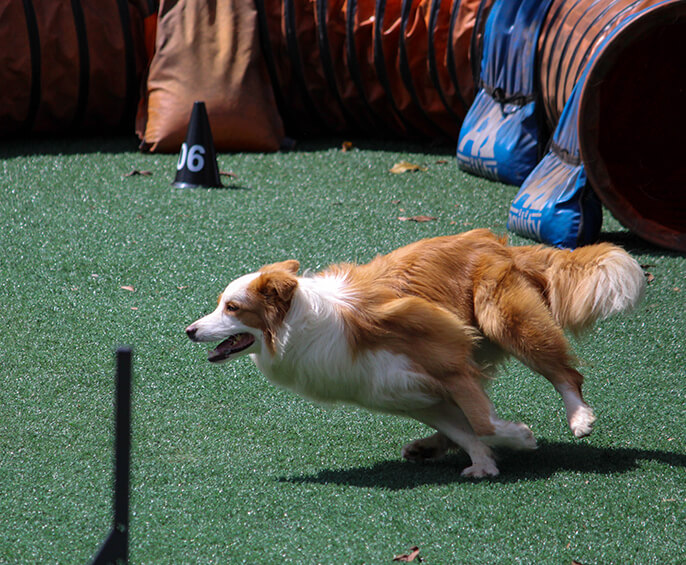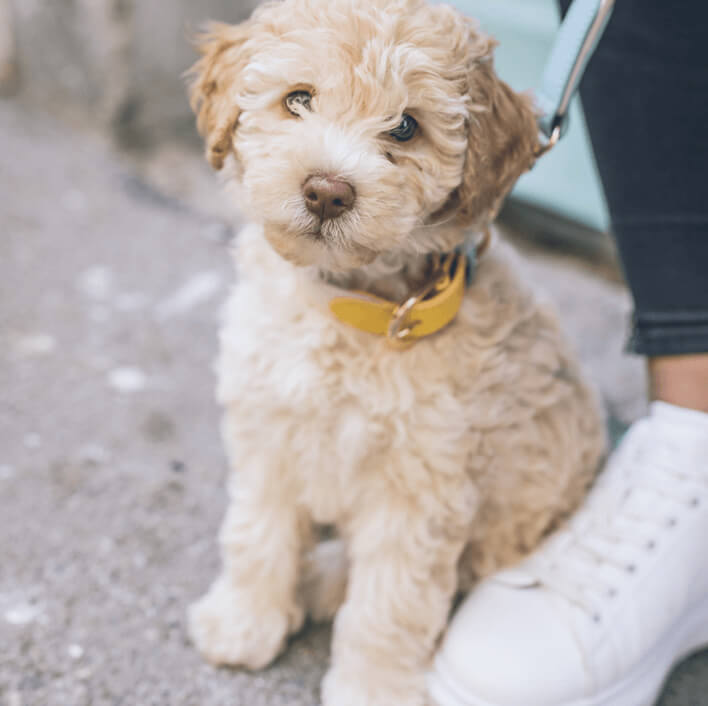Do you know how to select the best dog for your lifestyle? A new dog is an important decision. Before you begin the process, you should first determine if you’re ready to get a new dog. You must also understand the costs of owning a dog. Congratulations if you’ve decided the right time has come! It is now time to decide what kind of dog you want.

Before choosing a dog, you should consider several things. Examine your lifestyle, and decide what changes you’re willing to make in order to accommodate a new dog. Consider the requirements of your entire family. This is especially important if there are kids or elderly relatives. Hypoallergenic Dog Breeds are a good choice for people with allergies or who want fewer shedding dogs. However, some allergy sufferers may still experience symptoms.
Then, consider the size, age, and energy level of your dog. Remember that getting a puppy requires you to commit yourself for at least 10-15 years of responsible dog ownership. These tips will help you select the right dog for your family and yourself.
The Size
It may be that you already have a small dog in mind, which you will carry with you, or you could want to get a giant or dog breed. A medium-sized dog may be the best choice if you are unable to decide.
Be aware that certain smaller dogs may be more delicate, and therefore more susceptible to injuries. Stepping on a dog or handling it incorrectly can lead to serious injuries. Little dogs are more susceptible to the cold, so keep in mind that you will need to provide warmth for them. Due to their size, they may need frequent potty and meal breaks. This can also make them more maintenance-intensive than larger dogs. Do not forget to train your small dog in obedience! Since they’re easy to handle and remove physically from difficult situations it is not uncommon for little dogs to receive inconsistent training. This can result in unwanted behaviors such as growingling, biting, or wanting to always be held. Prepare yourself for the possibility.
Large dogs require more room to maneuver. To avoid injury to the tail, or to damage household items, big, happy dogs need “wagging room”. The cost of the pet is also a factor to consider. As the dog grows, so do the costs for things such as dog food, supplies and medical treatment. The training is another important factor. When you buy a giant or large breed puppy, you should not allow him to be treated as a lapdog. He will eventually grow to literally walk over you.
Activity Level
Some dogs are more energetic than others. Breed is often a factor in determining a dog’s energy level, but this does not mean that you should rely solely on the breed to predict how active your dog will become. You should provide your dog with daily exercises regardless of their breed. You will be happier with a dog that is low-energy, like a Basset Hound, if you are unable to commit more than two walks per day. Consider a breed such as the Border Collie if you want a dog who can act as a running partner, an agility competitor or a “disc dog”.
If necessary, adjust your exercise routine and the attention that you provide to your dog. Dogs that are constantly barking, who dig up your lawn, destroy your house, or act out in other ways may require extra training, enrichment of their minds, and more activities. Excess energy can exacerbate many behavioral problems. Many dogs end up being euthanized or given away because they have behavior issues. These problems can be caused by lack of attention, socialization, and exercise.
Physical Maintenance
The appearance of your dog has an impact on his needs for maintenance. Some dogs require more grooming than others, depending on their hair type . You will need to perform advanced grooming on a dog that has a lot of hair. Be prepared for extra cleanup if you have a dog with short hair and a smooth coat. Some grooming tools can help reduce shedding.
Dogs with long floppy ear hairs are at greater risk of infections, and they may need frequent ear cleaning. Many small-breed dogs can be prone to dental diseases, requiring expensive dental treatments and regular home brushing. Certain breeds of dog can also drool a lot. Mastiffs and Bloodhounds owners carry “slobber towels” to clean up drool. Be careful if they shake their head!
Age
Puppy requires the most training and attention during the first six-month period. Prepare to spend a lot of time on training, and raising your puppy. You can expect your dog to have many accidents and chew on furniture or personal items. Patience is required to overcome these problems. Be aware, too, that the puppy you adopted might not grow up as you had expected. This is especially true if it’s a mix-breed. It’s not a negative thing to consider, but it is something you should be aware of.
An adult dog is a good choice. If you are looking to get a true idea about the energy, temperament, and attitude of your dog, an adult may be better. Even though the dog may be an adult, it does not necessarily mean that he has been -trained. You should expect to spend some time training him at first. Many adults are already socialized and trained to some extent and will easily adapt to their new life in their forever home.
Do not forget about senior dogs! It can bring a lot of joy into a dog’s golden years to welcome a senior pet home. Senior dogs tend to have a lower adoption rate and end up in shelters, or even being put down.
If you’re looking for an energetic dog that isn’t as demanding, a senior dog could be the perfect companion. You should know, though, that your older dog will need more attention and more frequent vet visits. They are also more prone to developing problems, which can be costly to fix. You will have fewer years to spend with your senior pet than you would with a puppy or dog. Consider adopting an older dog if you’re willing to take on the responsibility. This can be a very compassionate thing to do.
Breed
It is hard to deny the popularity of purebred dogs. There are many reasons why people choose a particular dog breed. You may have been raised with the breed, or spent much time around it in your lifetime. You may love how a particular breed looks or acts. You may feel that a breed is the right one for you because of what you’ve read about it. Do thorough research on the breed if you are looking to get a purebred. You should also consider your willingness to deal with potential problems such as temperament issues, health concerns, or grooming requirements. You should also consider whether the breed you choose will work with your lifestyle and family, which includes other dogs. You should then look for a dog breeder who is responsible.
Mixed breed dogs are a wonderful addition to any home. Combining two or more breeds of dogs can balance their physical and personality characteristics. You should expect the unexpected when you get a “pound pup” because you can’t predict how it will grow up or what health issues you may face. Experts believe mixed-breed canines have fewer health issues than purebred dogs. They are generally intelligent, unique and great companions. Adopting a mix-breed canine usually saves the dog from being euthanized, or living a life in a shelter alone.

